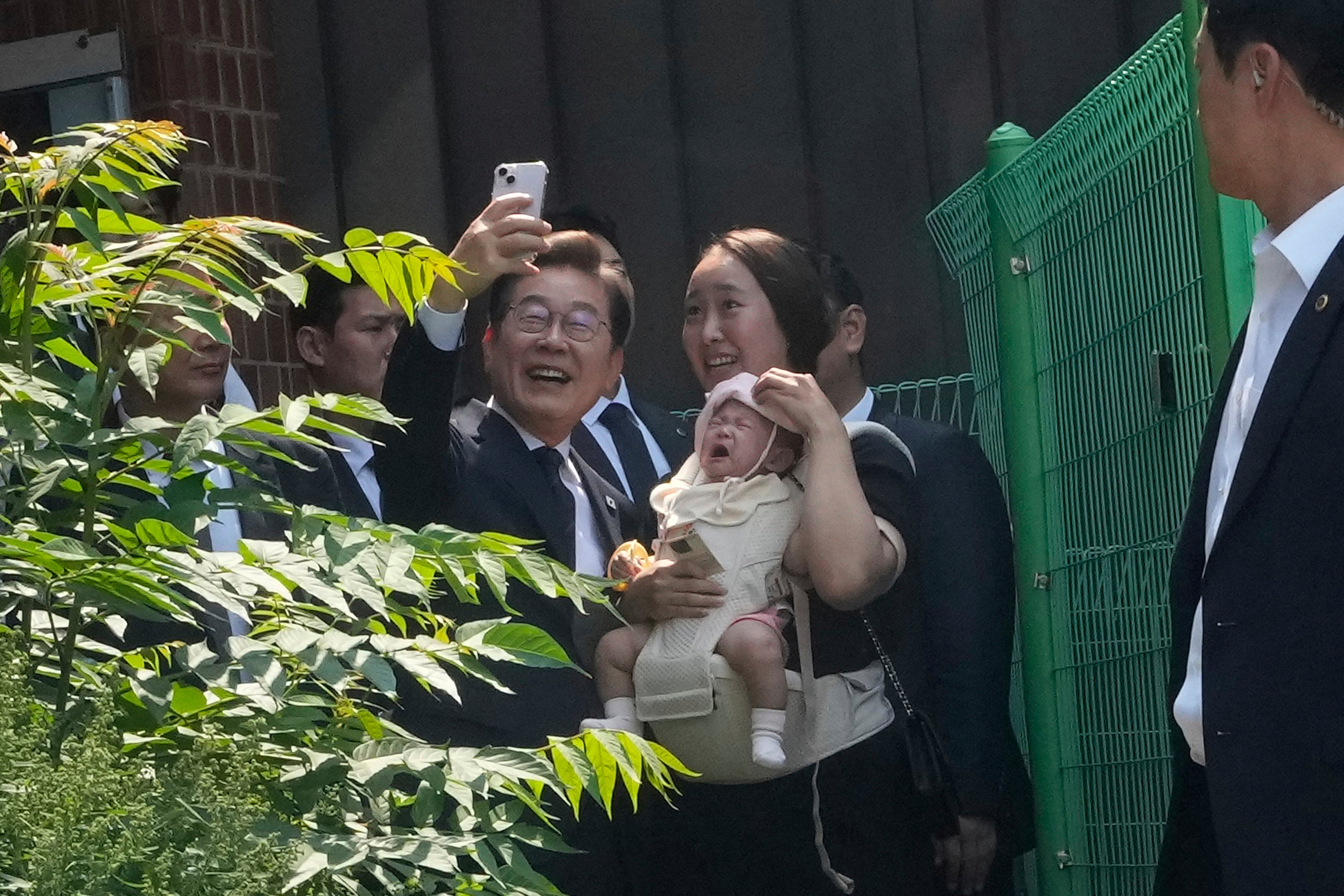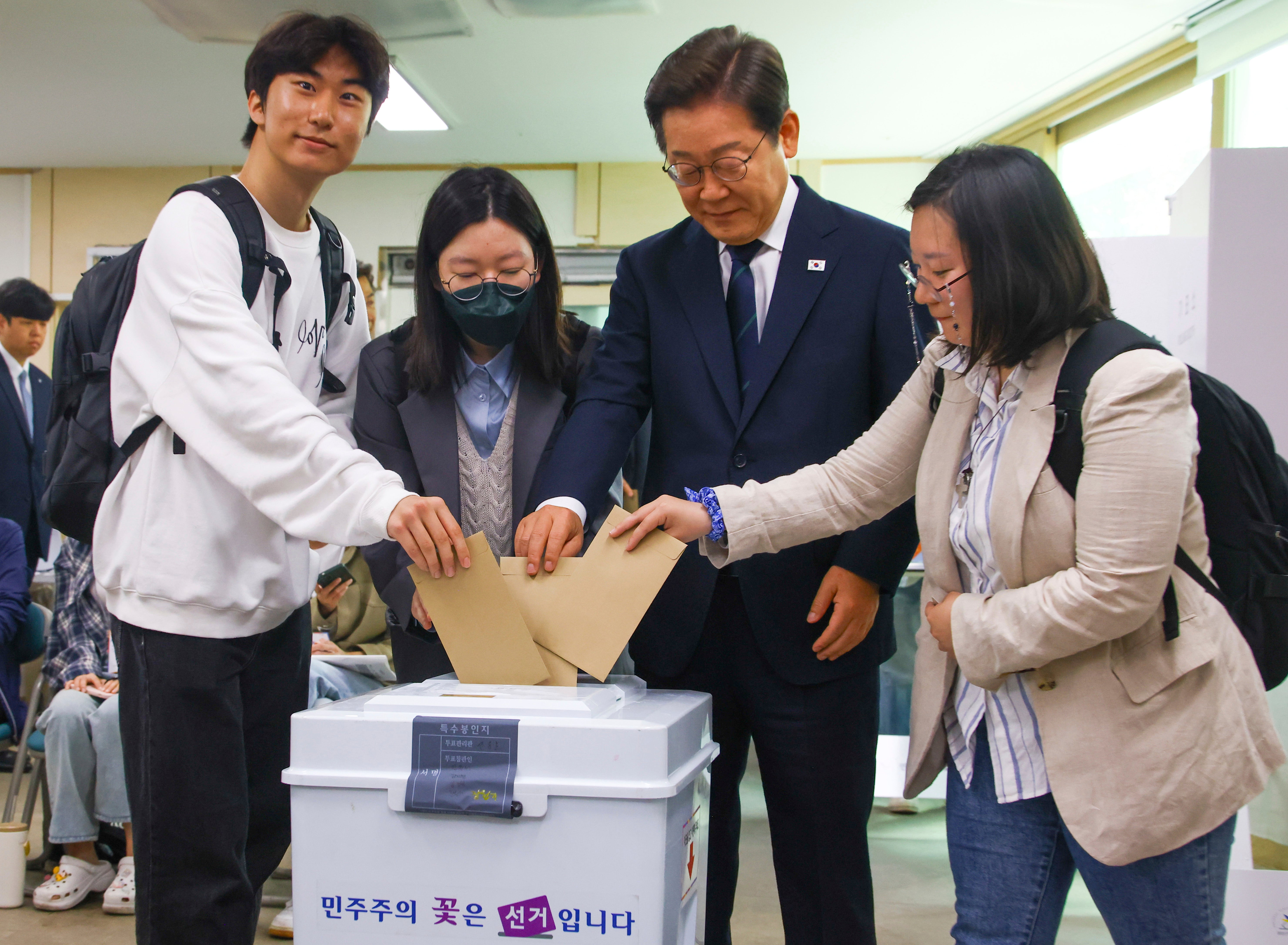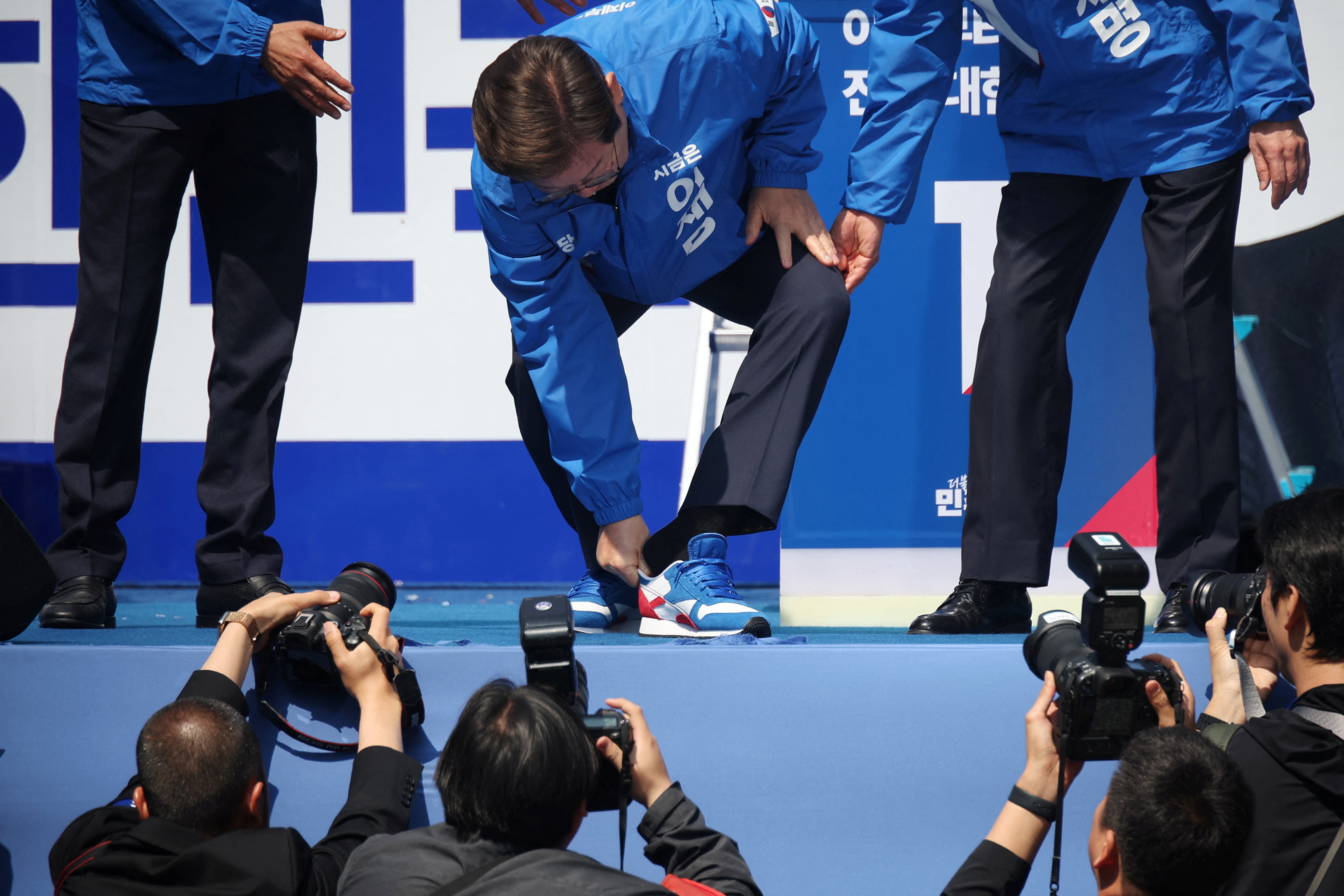Just three years after narrowly losing the presidential election to conservative Yoon Suk Yeol, Lee Jae Myung has emerged, phoenix-like, as the new leader of South Korea.
Such a prospect appeared unlikely until a few months ago as the leader of the liberal Democratic Party grappled with a raft of legal troubles and scandals.
But after Yoon made a botched attempt to place South Korea under martial law in December and, as a consequence, was impeached out of office, Lee projected himself as the protector of the democratic order and led in public polls, albeit by a small margin over his conservative rival Kim Moon Soo.
Lee, 61, has now succeeded Yoon with a decisive victory in the snap presidential election, which drew a record voter turnout in a deeply polarised and politically weary nation. Lee, who narrowly lost to Yoon in the 2022 election, won 49.42 per cent of the nearly 35 million votes cast to Kim’s 41.15 per cent.
His rise to the cusp of power, though, also raises a critical question: is he the steady hand South Korea needs when the corruption investigations and abuse of power allegations against him are certain to cast a shadow over his presidency?
Lee, described by advisers as a “gladiator in a suit”, moved quickly into the spotlight as he aggressively countered Yoon’s disastrous martial law decree.
During the crisis in 2024, he climbed onto the fence of the National Assembly building to evade the president’s security guards and documented the chaos on a livestream.
Analysts remain sceptical about his ability to provide the stable leadership that the country desperately needs. While he campaigned as a pragmatist focused on domestic issues, his record of confrontational politics, ongoing legal troubles and polarising rhetoric raises doubts about his capacity to unite a divided nation.
“The legal problems of Lee cast a shadow, and depending on developments, South Korea’s political leadership problems may continue after the election,” Naoko Aoki, political scientist at RAND, told The Independent.

Yoon’s martial law declaration created months of political instability, triggering a wave of public discontent with his People Power Party that Lee sought to ride into the top spot.
The People Power Party’s Kim consistently trailed in public polls despite projecting himself as a moderate going up against the “harbinger of monster politics and dictatorship”, as he has described Lee.
Kim was aware of the need to attract the centrist vote if he were to have any chance against the liberal frontrunner. In the event, he came up short.
Sojin Lim, co-director of Korean Studies at the University of Central Lancashire, argued that Lee winning the election was concerning “given his past leadership style and the ongoing legal cases against him”.
“His approach has often been confrontational rather than conciliatory,” she tells The Independent, “which may not align with the consensus-building leadership South Korea urgently requires.”

Lee has positioned himself as a pragmatic leader, advocating for policies that appeal to a wider electorate. His proposals, addressing calls for reducing presidential powers after Yoon’s actions, include constitutional changes to have a two-term presidency, a run-off election system, and parliamentary nomination of the prime minister.
He also aims to shorten the work week, raise the retirement age, and combat the population crisis with housing and tax benefits for families.
Lim says what sets Lee apart is his populist platform, centred on expansive welfare pledges like a universal basic income which appeal to economically discontented voters but risk deepening existing political divisions.
The liberal leader’s “confrontational rhetoric and polarising leadership style may alienate conservative factions, making bipartisan cooperation difficult in an already fragile political climate”, she explains.
“To govern effectively he would need to temper his populist agenda with inclusive policymaking and deliberate efforts to bridge ideological and/or political divides.”
Lee sought to resonate with younger voters by donning blue-and-red Reebok sneakers, colours of the national flag. The wearing of the sneakers, which quickly became a coveted commodity after he began wearing them on the campaign trail, was a conscious choice, aimed at playing up one of his pledges to unite South Korea’s liberal and conservative voters.

Lee was born to a family of farmers in a remote mountain village in the country’s southeastern region. He worked in chemical factories as a child, suffering an industrial accident that left him with a permanent injury to his arm and impaired hearing.
He used his rags-to-riches story on the campaign trail, bringing up his impoverished childhood to focus on economic equality.
He grew up to study law on a scholarship, passed the Bar in 1986 and worked as a human rights and labour lawyer for about two decades.
He made his political debut in 2005 with the Uri Party, a predecessor to the Democratic Party, and was elected mayor of the city of Seongnam, south of Seoul, five years later.
Aiming for higher office, he contested and won the 2018 election for governor of Gyeonggi-do, South Korea's most populous province.
In his campaign for president, Lee sought to tamper his image as a polarising populist with a more measured, pragmatic tone.
It remains to be seen, however, Aoki says, “whether he can stick to his key campaign positions”.
Managing relations with South Korea’s neighbours, especially North Korea and China, is set to be one of the main challenges for the incoming president.

Unlike Yoon, who pursued a more hardline approach towards North Korea, Lee has said he would seek to ease tensions by restoring a military hotline and a military agreement ditched by Pyongyang amid rising animosity in 2023.
“North Korea continues to remain a political focus during the campaigning. No matter who wins in this election, they might have a slight departure from former president Yoon Suk Yeol's hardline approach on North Korea and China,” Dr Jagannath Panda, head of the Stockholm Centre for South Asian and Indo-Pacific Affairs at the Institute for Security and Development Policy in Sweden, told The Independent earlier.
Aoki says Lee possibly extending an olive branch to Pyongyang is not surprising. “His official platform does not include, for example, grand gestures like inter-Korean summits or economic cooperation but rather focuses on smaller trust-building measures,” she adds.
As president, he will also have to deal with a string of legal cases, including a $1bn property development scandal from his time as mayor of Seongnam.
In what is known as the “Daejang-dong scandal”, he has been indicted on charges of bribery, corruption, breach of trust, and conflicts of interest.
In another legal case, Lee was convicted last November of violating the election law for making a false statement during a debate in the 2022 presidential campaign. An appeals court overturned Lee’s conviction, but the Supreme Court reinstated it and ordered a new sentence to be handed out. The sentencing, however, was postponed until after the election to avoid influencing the outcome.
Another case is linked to an alleged scheme to use an underwear company to transfer funds to North Korea and facilitate a visit to Pyongyang when he was governor between 2019 and 2020.
Lee has denied wrongdoing in all cases, calling them a “witch hunt” by the People’s Power Party to undermine his political career.
Lee Jae Myung vows ‘lasting peace’ with North Korea in inauguration speech after win
Liberal Lee Jae Myung wins South Korea election and promises unity after turmoil
Exit polls in South Korea election show huge victory for left-wing leader Lee
South Korea votes in snap presidential election after six months of political chaos
South Korea election: The leading candidates, key dates and top issues







